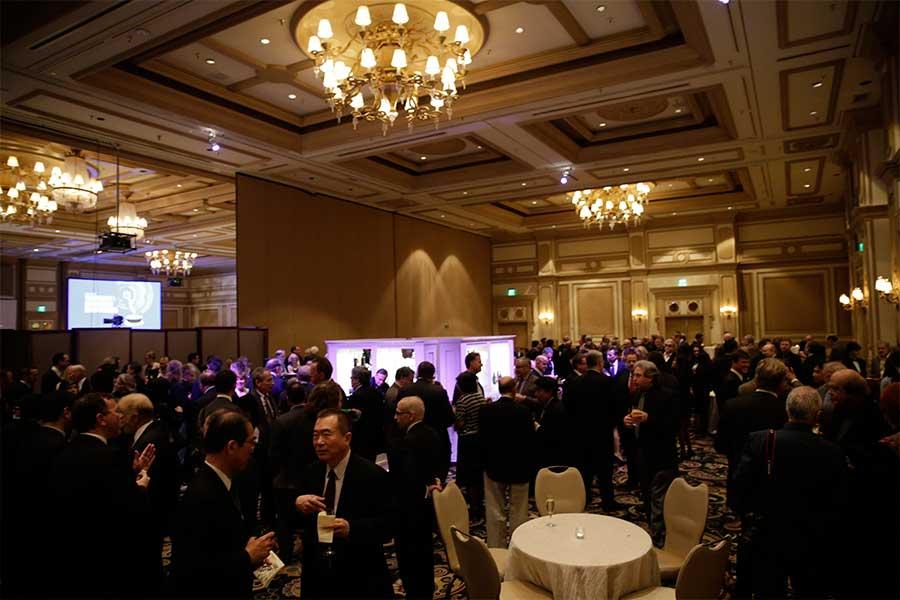
06 Oct Quarantine: The Antidote to My Imposter Syndrome
It was a hot June evening. I was at the American Surgery Association conference to present my graduate research work. The hotel ballroom was packed tight, the sea of black and grey designer suits donned by the accomplished movers and shakers of the surgery world gave the room an ambiance of power and privilege. The din of the crowd was loud and obnoxious– almost no one was silent, except for the wait staff moving stealthily among us with fancy appetisers and hors d’oeuvres. Amidst the mix of chatter, laughter, and mingling there were the graduate students clutched to the buffet station and open bar. For a while, I enjoyed myself– freely stuffing my plate with gourmet meals that I could hardly pronounce and knocking back drinks, happy to pass the time.
However, everything came to a screeching halt, when my lab colleague turned to me and said “Abdi, there is Dr Porter, go and see if he can help get you off the waitlist?.” As faith would have it, here in this ballroom was Dr Porter, a faculty member of the medical school I was recently waitlisted at. This was my chance, my one golden opportunity to plead my case as to why I should be taken off the waitlist. Yet there was something deeper and less definable that frightened me at the idea of going up to this doctor to plead my case. I just stood there, dumbfounded by my lack of confidence and chutzpah.
Why was I so terrified to seize this opportunity to advocate for myself? Was it my dress code? Sure I wasn’t wearing Gucci or Hugo Boss like the surgeons, but the H&M pinstripe suit I got off clearance helped me to blend in nicely. Was it because I felt unaccomplished? No, at the time I held the Vanier Scholarship ($150K, Canada’s equivalent to the Rhodes scholarship) at the top medical science program in the country and even had a few medical publications to my name. My intellect was sufficient, and my extracurricular activities were suitably interesting and well-rounded. But yet, I said nothing. I did nothing to seize that opportunity.
Later as I walked back to my hotel room, my lack of action haunted me and lingered in my mind. Did I just cause myself the biggest opportunity of my life? Would the doctor have even liked me enough to help me? I would never know what could have been!
Growing up, I was taught that the path to success was to put my head down and work hard in silence. If my work and accomplishments were great, it would speak for itself and I would be rewarded. But merit alone to the path of success is a myth. Whether it is in the medical, business, and or the legal profession, succeeding entails being versed in skills like self-advocacy and self-promotion to snatch those scarce opportunities.
I operated as I was raised, which was to excel but keep it hidden. Rather than milk all the networking and doors the Vanier scholarship was meant to open for me, I retreated and almost operated as if I was unworthy. It did not help that I was also in a cutthroat research lab where I was targeted as the new “superstar kid”, from dirty looks to backhanded comments. I even had this one student, who I will call “paparazzi Joe”, who despite enjoying my company earlier during a Saturday night at the lab, was unbeknownst to me secretly photographing intimate photos of me devouring my Tim Hortons donut and coffee. I found out the next day, those unflattering photos were sent by him to the lab authorities to get me punished for eating in the lab.
There was also our research lab equivalent of a “Karen” who once said to me, “you’re a lucky person to get Vanier, you know it is all about luck.” She insinuated the only way someone like me could get this scholarship was only through luck, completely discounting my hard work, the endless nights of studying, and soul-crushing battles at the local, state, and national level I had to face to make the final cut. I had received no special treatment, nor had any luck played a role but that query planted the seed in my head that I was an imposter, that I was not accomplished enough for this space. If one person was thinking this and was brazen enough to share this with me, I wondered what everyone else was thinking. From that day on I struggled to share and celebrate my academic achievements. While the other select Vanier scholars at my school thrived and secured new opportunities on the back of this title, I became stagnant in my career development and any mention of this prestigious title quickly disappeared from my identity, vocabulary, resume, and most devastatingly quickly morphed into something I feared rather than celebrated. Sadly, this experience is not unique to me. Studies have shown that people who experience impostor syndrome are high achievers unable to internalise and accept their success, often attributing their accomplishments to luck rather than to ability. For years I let this imposter syndrome chip away at my confidence and allowed it to almost destroy my academic career.
Then 2020 and COVID-19 happened. The realities of COVID-19, as well as the illnesses and deaths of close family members, colleagues, and role models, precipitated urgent self-examination. In the silence of the lockdown, I immersed myself in an honest accountability assessment of my privilege, purpose, and efforts in how far I had come— from my early days as a refugee with a bleak future to now a clinician-scientist in training. I came to understand that I can’t achieve the ambitious goals I have for myself or be rewarded for my hard-earned accomplishments if I’m invisible. This isn’t a radical idea, I know, but COVID-19 was my personal ‘aha’ moment and as an introvert, this realisation was my Mount Everest to climb.
The social isolation that came with COVID-19 has allowed me to realise that I need to be more proactive in advocating for myself and seizing opportunities as they come. Indeed, I have for the first time embraced social media platforms like Instagram and LinkedIn to share my accomplishments more widely and to network. I was hesitant at first, worried that I might cross the fine line from self-advocacy to bragging. But when I asked myself if I had disapproved of seeing my other accomplished colleagues sharing their publications, awards, and achievements, the answer was “NO”. Using my @double.doc.abdi Instagram handle (shameless plug), I now unapologetically share that award, publication, and boldly send friend requests to those same surgeons I was afraid of two years ago.
Interested in writing for the GUMS blog? Email our Publications Officer, Ashraf, at ashraf.docrat@griffithuni.edu.au
Image credit: emmys.com

